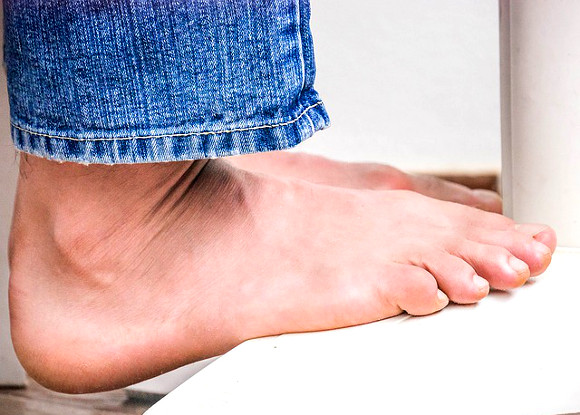Social phobia
Most people are nervous and anxious before or during some social events such as job interviews, public speech or meeting, but that is normal. Social phobia is much more than simple embarrassment and butterflies in the stomach and affect the lifestyle of that person.
What is social phobia:
Social phobia is also called social anxiety disorder. It is much more than simple embarrassment. Shy people are able to participate in all social events. On the other hand, people who suffer from social phobia are very much affected by the disease, and it affects their ability to perform normal daily activities.
People who suffer from social phobia have an ongoing, intense and chronic fear of being monitored, condemned and criticized by others or they fear not to embarrass or humiliate themselves from their actions. While they understand that their fear of being near other people is exaggerated and irrational, they are unable to control it. Fear, anxiety and panic can even occur days or weeks before a social event.
Around 5-8% of people worldwide suffer from this type of phobia. Usually, the first recognition of this disorder is during the teenage years, but it also may develop later in life. Social phobia often leads to depression and addiction to drugs and alcohol. Much of the affected from social phobia use alcohol or drugs as a way to relax in front of other people.
Symptoms and treatment:
Most people who suffer from social phobia are afraid of being embarrassed. They feel that others observe them and are afraid that others will notice symptoms such blushing, sweating and so on. They also believe that showing anxiety is a sign of weakness.
They are afraid of public speaking, holding meetings, writing in public, eating in public, using public WC, talking with strangers or authoritative figures, going to parties etc.
Social phobia can cause physical and psychological symptoms and behavioral changes.
The psychological symptoms and behavioral changes are:
Fear of humiliation in front of others;
Intense fear of contact with strangers;
Fear of situations that may lead to criticism or evaluation;
Fear that others might notice anxiety;
Anxiety that disrupts the normal functioning and performance of everyday tasks like work, school and other activities;
Avoiding certain activities because of fear of communicating with other people;
Avoidance of social events that require stepping in the spotlight.
Physical symptoms:
Blushing;
Trembling;
Increased sweating;
Dizziness;
Stomach problems;
Problems in speech;
Trembling voice;
Confusion;
Cold hands;
Inability to establish eye contact.
If fear and anxiety are not very strong, there is no need to visit an expert. For example, if a person hates to hold public speeches, but he does not experience anxiety attacks, then he probably does not need professional help.
But if this type of disorder affects the lifestyle of that person, i.e avoidance of certain activities, poor communication with people, denial of opportunity for professional development and so on, it is necessary to have consultations with an expert.
Usually this problem is overcomed with the help of psychotherapy. Cognitive-behavioral therapy helps 75% of people who suffer from social phobia. This type of therapy is based on the idea that our thoughts, and not the other people’s, decide how to act or react. During the therapy the person needs to learn to recognize and change the negative thoughts. But the progress should not be expected immediately. You need to spend a longer period, usually several months.
Sometimes the expert may decide that medications are needed to overcome the problem.
Risk groups:
Some people are more inclined to develop social phobia than others. It depends on factors such as:
Sex: Women often suffer more from social phobia than men.
Family history: Many studies show that it is more likely the social phobia to be developed in people whose parents suffered from this type of disorder.
Bad experience: Social phobia may be the result of bad experience or trauma in the past. If children were bullied, humiliated or insulted, they are more inclined towards the development of social phobia.
Shyness: Shyness makes people to develop social phobia.
How to help yourself:
The first step toward improving your condition is recognition of the existence of a problem. Once you admit that your fear is irrational, you will have the will to help yourself.
To reduce the negative impact of social phobia, you need to learn the situations that trigger anxiety in you. For this purpose you can keep a diary of the symptoms that occur to you and the situations and events that have caused them.
Talking about the problem is the most important step towards progress. If you notice that someone near you suffers from this or a similar problem, talk with him. That will help you to both to deal with this type of anxiety.
Before a big event, like public speaking, repeat what you will tell and think how not all people will stare at you. It will help you be ready when you stand before them and will reduce your anxiety.
Here are some practical tips that can be applied to gradually get rid of the negative impact of social phobia:
Make eye contact when you greet someone. Be the first to greet someone you know, do not wait for him to come closer.
Give more compliments.
Show interest in other people, ask them about their health, family, hobbies, etc.
In the supermarket or boutique please ask the staff if you have some questions.
Eat in public with a close friend or relative.
Breathe deeply and slowly.
Focus on the strengths and talents that you have.
Avoid or reduce the caffeine intake. Coffee, tea, energy drinks or chocolate may enhance the symptoms of anxiety.
Reduce alcohol. Although maybe it helps you to relax in front of other people, it is best to avoid it, because it increases the risk of a panic attack.
Sleep enough. When you have not slept enough, you are more inclined to anxiety. Good vacation will keep you calm during social situations.


